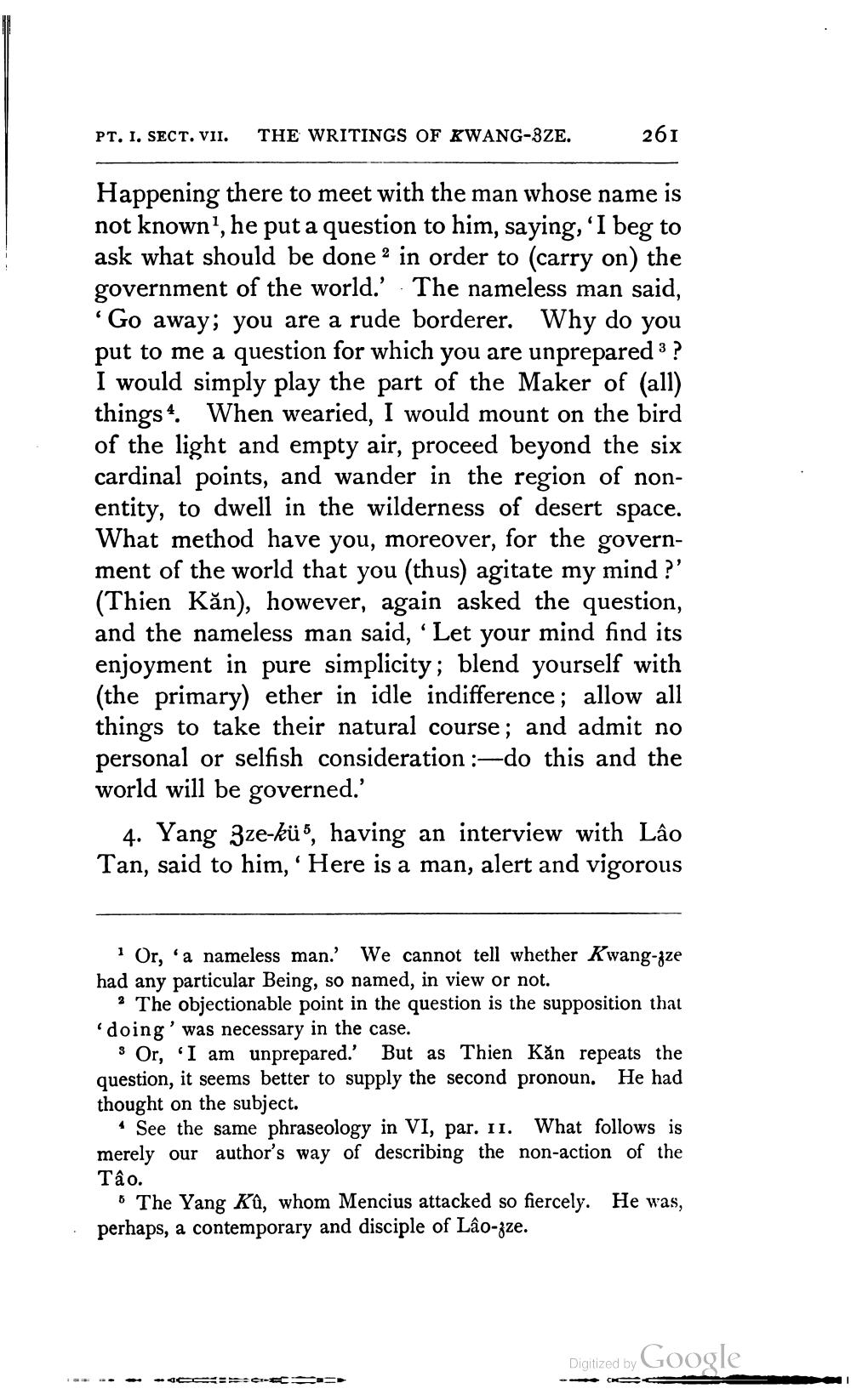________________
PT. I. SECT. VII. THE WRITINGS OF KWANG-3ZE.
261
Happening there to meet with the man whose name is not known1, he put a question to him, saying, 'I beg to ask what should be done 2 in order to (carry on) the government of the world.' The nameless man said, 'Go away; you are a rude borderer. Why do you put to me a question for which you are unprepared 3 ? I would simply play the part of the Maker of (all) things. When wearied, I would mount on the bird of the light and empty air, proceed beyond the six cardinal points, and wander in the region of nonentity, to dwell in the wilderness of desert space. What method have you, moreover, for the government of the world that you (thus) agitate my mind?' (Thien Kăn), however, again asked the question, and the nameless man said, 'Let your mind find its enjoyment in pure simplicity; blend yourself with (the primary) ether in idle indifference; allow all things to take their natural course; and admit no personal or selfish consideration:-do this and the world will be governed.'
4. Yang 3ze-kü3, having an interview with Lâo Tan, said to him, ' Here is a man, alert and vigorous
1 Or, 'a nameless man.' We cannot tell whether Kwang-zze had any particular Being, so named, in view or not.
2 The objectionable point in the question is the supposition that 'doing' was necessary in the case.
Or, I am unprepared.' But as Thien Kăn repeats the question, it seems better to supply the second pronoun. He had thought on the subject.
See the same phraseology in VI, par. 11. What follows is merely our author's way of describing the non-action of the Tâo.
The Yang Kû, whom Mencius attacked so fiercely. He was, perhaps, a contemporary and disciple of Lâo-zze.
ATRAUK
Digitized by Google
Co




